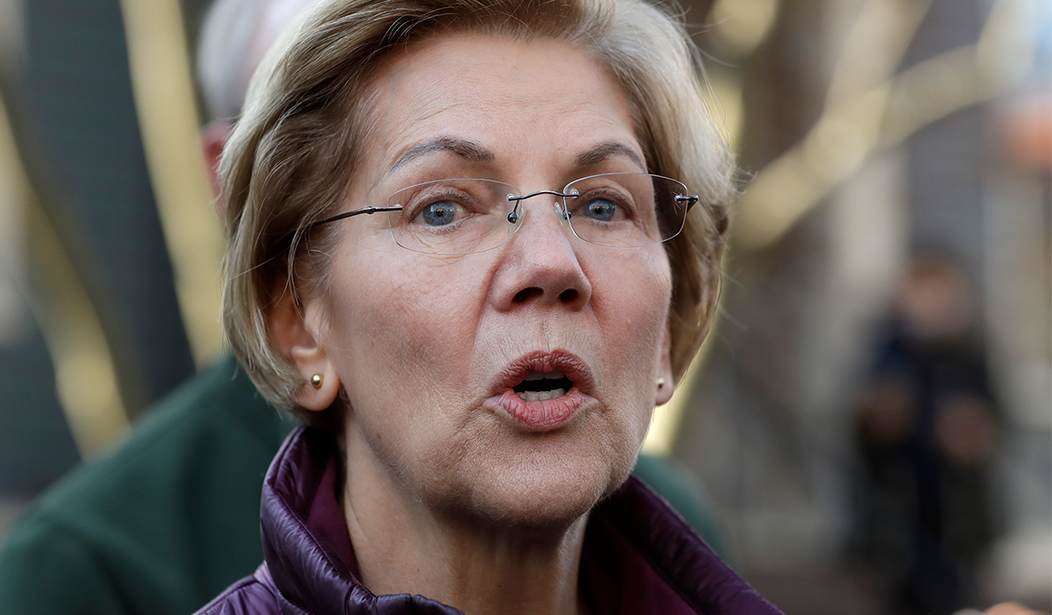History has a way of repeating itself. Or maybe it's that people cling to defunct beliefs, stubbornly refusing to learn from experience. Such stubbornness is on display when pundits, legislators and President Joe Biden blame inflation on corporate "greed." The fix, they claim, is price controls. But such controls would only bring further economic calamity.
To explain hikes in the prices of meat, poultry and energy, many politicians and pundits say we must look no further than cold-hearted corporate CEOs padding their bottom lines at the expense of ordinary Americans. Companies today are allegedly so greedy that they use the pandemic as an excuse to charge extortionate prices. For example, Sen. Elizabeth Warren, D-Mass., told MSNBC's Chris Hayes that "giant corporations who say, wow, a lot of talk about high prices and inflation. This is a chance to get in there and not only pass along costs, but to inflate prices beyond that and just engage in a little straightforward price gouging."
Playing along with this blame game is Biden, who asserts that "(o)il and gas companies shouldn't pad their profits at the expense of hardworking Americans."
Biden is not the first president to demonstrate ignorance of the complex factors that determine prices at the pump. His and others' grandstanding complaints about high prices -- especially as they rise during inflationary times -- aren't novel. George Mason University's Don Boudreaux recently highlighted a still-relevant observation from 1976 by the late UCLA economist Armen Alchian:
"(D)irect attacks on the symptoms known to flow from inflation are politically convenient. As inflation occurs, politicians and the public blame businessmen and producers for raising prices and mulcting the public. ... The so-called shortage of gasoline and energy in the United States was precisely and only such a political attack."
Recommended
Today, we should remember Alchian's sobering description of what happened when economically illiterate politicians attempted to control inflation by imposing price controls:
"Inflate the money stock; when prices rise, impose price controls to correct the situation. These controls lead to shortages which 'require' government intervention to assure appropriate use of the limited supply and to allocate it and even to control and nationalize the production of energy. The powers of political authorities are increased; the open society is suppressed."
The unrealistic assumptions underpinning the logic of those who argue for price controls are quite amazing. First, hikes in prices apparently have no impact on consumers' demand for goods. That's because monopolies are supposedly everywhere, and most goods -- we are to believe -- are so indispensable to consumers that we will buy nearly all of them at any price.
In addition, the price controllers bizarrely assume that when faced with bans on price increases, producers (who are also coping with inflation and other challenges) will keep supplying the same goods to market. So, the only impact price controls are said to have is to decrease the amounts consumers pay, while having no effect on consumption or production.
This belief, of course, is nonsense. When prices rise, consumers reduce their demands for goods (unless inflation expectations come into play, and consumers increase purchases today to avoid even higher prices tomorrow). Also, companies prohibited by law from raising their prices will reduce their supplies, thus creating the shortages Alchian warned about.
To believe that inflation is the product of corporate greed requires even more obliviousness to reality. Inflation is truly a general and ongoing increase of all prices, including wages (which are the price of our labor). This reality means that all companies would have to be getting greedier simultaneously, and that all workers are, at the same time, overcome with similar avarice.
On that note, if corporate greed is sufficient to allow companies to get away with raising prices, why isn't it sufficient to allow them to resist demands for higher wages?
The fact is that inflation isn't caused by corporate greed. Readers of this column know by now that it's caused by government's excessive deficit spending, fueled in part by loose monetary policy. Therefore, getting rid of inflation requires an increase of interest rates theoretically higher than the current inflation, along with some overdue fiscal discipline. Reforms like deregulation that promote faster growth in the supply of goods and services would also help.
What we don't need, but what we'll likely get, is more government spending and more debt accumulation. The result will only fuel the inflation fire. Let's hope that we at least avoid making matters even worse with price controls.

























Join the conversation as a VIP Member